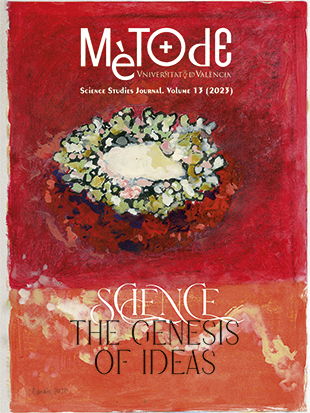Editorial
DOI:
https://doi.org/10.7203/metode.13.26012 Abstract
Abstract
The physicist and science communicator Jorge Wagensberg used to say that the creativity of the human mind requires three things: to have a good idea, to know that the idea is good, and to convince others of it. But to have a good idea, we first need to look curiously at the world around us and ask the right questions. These questions may need to change as knowledge grows and events unfold. Years ago, when we talked about the climate emergency, the main question was what we needed to do to prevent climate change from crossing critical thresholds. The problem is that we did not take this question very seriously, or perhaps we did not like the answer enough, and so the main question we are facing now is how to ensure that the impact of climate change on our societies is minimised, and how to adapt to this new scenario which, if nothing changes, will only get worse in the coming years. What is both comical and worrying is that just as the consequences of climate change are becoming impossible to deny or ignore, the number and aggressiveness of climate deniers and delayers on the Internet is growing in parallel.
In this scenario, it is more important than ever to reflect on the models of science communication that we are currently implementing, as Professor Hans Peter Peters does in the article that opens this new volume of Metode Science Studies Journal. This volume contains four monographs that address necessary questions and issues, such as the opportunities, challenges and threats facing drylands today, the origins of human societies, the One Health framework and how it can help us, and whether there is anything natural about the concept of beauty. Four monographs born of curiosity about the world around us, our own species, and the questions we ask ourselves in the face of new challenges that make us think and reflect. In short, they are the genesis of new ideas, always based on science.
 Downloads
Downloads
 References
References
Downloads
Published
How to Cite
-
Abstract680
-
PDF636
Issue
Section
License
![]()
All the documents in the OJS platform are open access and property of their respective authors.
Authors publishing in the journal agree to the following terms:
- Authors keep the rights and guarantee Metode Science Studies Journal the right to be the first publication of the document, licensed under a Creative Commons Attribution-NonCommercial-NoDerivatives 4.0 International License that allows others to share the work with an acknowledgement of authorship and publication in the journal.
- Authors are allowed and encouraged to spread their work through electronic means using personal or institutional websites (institutional open archives, personal websites or professional and academic networks profiles) once the text has been published.





